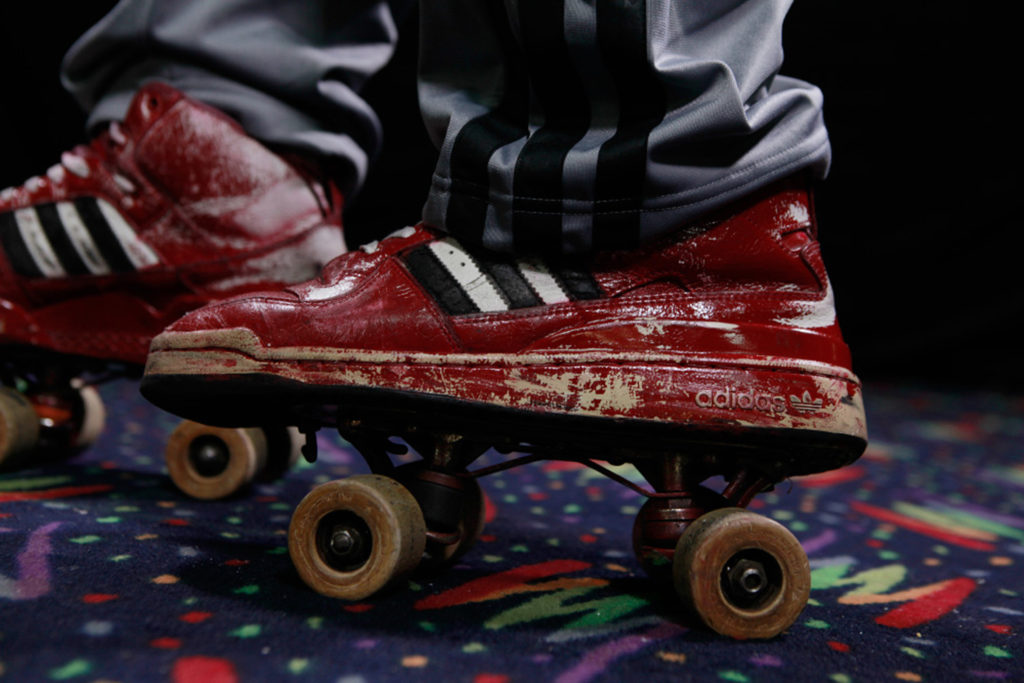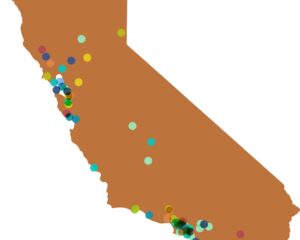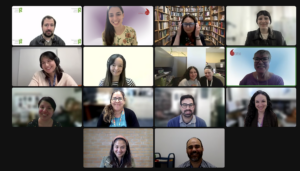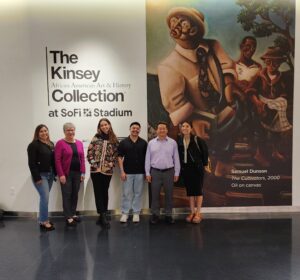We at California Humanities are big fans of the new film by co-Directors Tina Brown and Dyana Winkler United Skates and are proud to have been one of the project’s earliest funders. The film focused on African American skate culture through the decades including two much-loved rinks in Los Angeles that figure heavily in the storyline. It premiered at the 2018 Tribeca film festival and is currently streaming on HBO. We talked to filmmakers Dyana Winkler and Tina Brown and LA-based skater Phelicia Wright, who appears in the film, about their experiences making the film, the incredible reception it’s gotten, and how they hope it’ll change the landscape of skating in the US.
Below, read Phelicia’s interview where she talks about how she got involved in the film, what different styles of skating are like, and how the film helped her save someone’s life. You can also read Part I and Part II of the interviews with Tina Brown and Dyana Winkler.
California Humanities: Phelicia, we loved watching you and your family in the film. What have things been like for you since the film premiered last April?
Phelicia: I pinch myself often. I’m so proud of the project and all that it is done for me and my family. Just this past weekend a young man at an event had his friends talk to me because he was shy. I’m in the February issue of Vanity Fair with the kids and he wanted me to sign it. I was like, absolutely! I almost had tears in my eyes.
CH: How has the Los Angeles skate community has been affected by the film so far?
Phelicia: A lot of people are having roller skating events all of a sudden, so that’s helping to keep the rinks open. We just want to save these spaces for freedom, for anyone who wants to put on those eight wheels and just enjoy roller skating.
CH: We know that there are different styles of skating across the country.
Phelicia: Most people have a style like “Fast Backwards” or Snapping”. You have the jamming technique in New York that was started by Bill Butler.
The music will tell you what type of skating you should be doing. When the old hip hop songs come on, you know that means fast backwards is about to happen, and you better get out of the way because you are about to be knocked down. In Chicago, they play a lot of James Brown’s music, so you know when that comes on you should do the JB Chicago type of skating. Certain music comes on for Detroit sliding, so you’ll know it’s time to slide. Or you’ll know when it’s time to Chicago flip and split.
CH: Is there is there an LA style, and how would you describe it?
Phelicia: We don’t have a style per se with a name. We roll on different types of wheels: fiberglass wheels that are cut down really small. That’s pretty much the LA style: wearing what are considered Stacy Adams shoes, old church shoes or whatever shoe you want. The type of wheels we have make us stand out from the rest. Humphrey, who made his own type of wheels, is our West Coast version of Bill Butler. Music and boot styles tell you what is going on.
CH: Do you or your kids have a favorite in terms of how you like to skate?
Phelicia: London, my baby, watched the film and she’s like, “Mommy. I want do the Chicago style.” So now she’s been mastering the JB style. I want to take her to a Chicago skate party so she can learn from people who do it all the time. She’s been doing the Chicago split and nutcracking in her Stacy Adams skates.
I like to slow walk or glide, or just kind of groove backward. I’m older now, so I don’t do all the crazy stuff I used to do. I can do everyone’s style—train ride, all of it—but I try to be a little more careful these days.
CH: Have you been to skate nights in other parts of California, and is there a difference?
Phelicia: Oh, definitely. LA pretty much sets the tone for the state of California, but you have San Diego skaters who come up to LA every weekend to skate. They drive two hours just to skate with the LA skaters. Northern California—they’re not going to make the trip unless it’s a special event. But the mecca of Cali skating is LA.
CH: The film will be broadcast on February 18 on HBO. A lot more people are going to see it because of that. How do you think this film will change the way people think about roller skating?
Phelicia: We are going to have to be ready. Now that our culture’s about to have another big boom again, we will have to have to be friendly, have patience and welcome more people into our environment. We are probably going to feel a little invaded. But that’s the beauty of United Skates. It’s going to make people see that we’re here. We’re going to stay. And they’ll see the magic that happens in our world because it’s a beautiful thing.
CH: Do you hope that more skating rinks will open?
Phelicia: As you can see in United Skates, we’re losing almost three to four rinks a month. We need to make that go backwards, where we are adding rinks, not taking them away.
We’re just going around in a circle over a hundred times, What’s the big deal? You can make money doing it, why not? I might invest in doing it for myself. If I could get a rink, that is the life!
CH: That sounds like a great idea!
What was it like having these filmmakers come into the community and document the events that are portrayed in the film?
Phelicia: I wasn’t in the very first cut; I came along later. I saw them at a skate-a-thon in Atlanta. They presented a trailer and I literally had tears in my eyes. The only thing I didn’t like is that the West Coast was not represented, and I’m LA all day. I reached out to them because we get left out a lot. It wasn’t my intent for it to be about me. I just wanted the West Coast represented. Now, it’s been going on so long that they’ve become like family. They got some great moments on camera: crazy moments, bad hair days, good hair days. It just became part of our life, having the camera there.
CH: What kind of reactions have you seen at those screenings from different audiences?
Phelicia: I’ve had people cry. One day we were doing laundry and forgot we were filming, so we threw all the clothes in the girls’ room. In the film you see all these clothes all over the room. This lady came up to me at the LA Film Festival screening and said, “I just want to let you know that you saved my life.” I’m looking at her like, what? She said, “I can’t clean my house like I want to. I have OCD, to the point where I feel suicidal, but seeing you in that scene and your transparency made me know that I was okay.” It blew me away to know that the one thing that makes me cringe is a one thing that saved someone’s life.
The impact of this film is far beyond what I could have ever imagined, and my transparency in the film is what’s blowing people away. If one person’s life is changed then my job for the film is done. It’s reached somebody.
That’s why this film is just phenomenal. It makes you cry and makes you laugh and makes you sad and makes you angry. It touches all your senses. When a film can do that, you know you have something magical.





